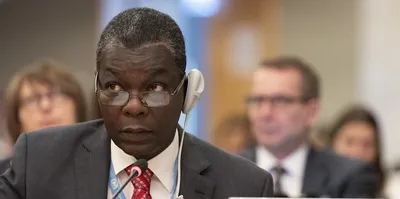The climate negotiator representing 135 developing countries has said that the credibility of the Cop28 agreement to “transition away” from fossil fuels rides on the world’s biggest historical polluters like the US, UK and Canada rethinking current plans to expand oil and gas production.
In an interview recently, Pedro Pedroso, who is the outgoing president of the G77 plus China bloc of developing countries, warned that the landmark deal made at last year’s climate talks in Dubai risked failing.
“We achieved some important outcomes at Cop28 but the challenge now is how we translate the deal into meaningful action for the people,” Pedroso said. “As we speak, unless we lie to ourselves, none of the major developed countries, who are the most important historical emitters, have policies that are moving away from fossil fuels, on the contrary, they are expanding,”.
These countries must also deliver adequate finance for poorer nations to transition – and adapt to the climate crisis.
Read also: Report: Climate change to increase cancer risk for millions of people in Bangladesh
Recall that In Dubai, Sultan Al Jaber, Cop28 president and chief of the Emirates national oil company, was subject to widespread scrutiny – understandable given that the UAE is the world’s seventh biggest oil producer with the fifth largest gas reserves.
Yet the US was by far the biggest oil and gas producer in the world last year – setting a new record, during a year that was the hottest ever recorded. The US, UK, Canada, Australia and Norway account for 51% of the total planned oil and gas expansion by 2050, according to research by Oil Change International.
“It’s very easy to label some emerging economies, especially the Gulf states, as climate villains, but this is very unfair by countries with historic responsibilities – who keep trying to scapegoat and deviate the attention away from themselves. Just look at US fossil fuel plans and the UK’s new drilling licenses for the North Sea, and Canada which has never met any of its emission reduction goals, not once,” said Pedroso, a Cuban diplomat.
The G77 plus China group is the largest bloc operating in the UN climate talks. The diverse coalition includes the world’s most populous countries and major emerging economies such as India, China, Brazil and Indonesia; significant fossil fuel producers such as Saudi Arabia, Venezuela and Nigeria; and some of the world’s most climate vulnerable nations such as Bangladesh, Vanuatu and Yemen.
Story was adapted from the Guardian.
